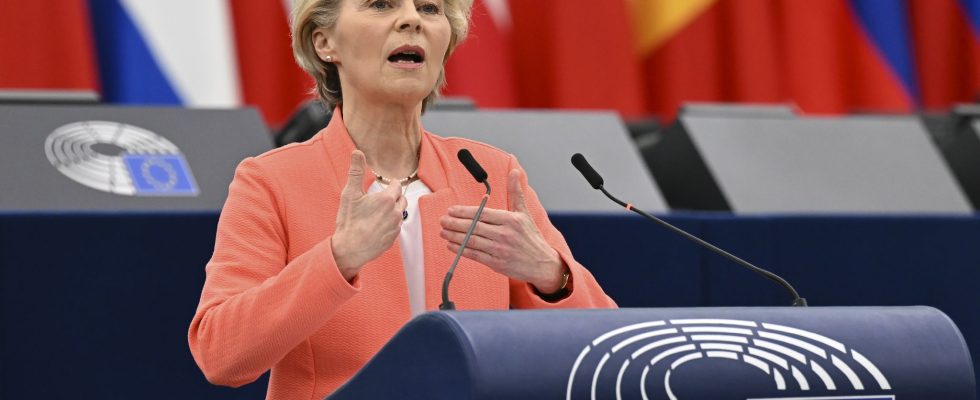What will the new budgetary rules of the European Union look like? The Twenty-Seven have been trying to establish them for several months, with the hope of finding a compromise by the end of the year. But while the goal is simple – reduce debt, boost growth – putting it into practice is much trickier. And the project presented by the European Commission on April 26 does not achieve consensus.
The finance ministers of the European Union are meeting in Sweden on 28 and 29 April to discuss this. Despite different points of view, “all the Member States are aware of the need to reach an agreement”, recalled Paolo Gentiloni, Commissioner for the Economy. The budgetary rules were adopted in 1997 under the name of the Stability Pact. This was suspended in 2020, to allow governments to react to the economic consequences of Covid-19. Since then, critics have swirled: the Pact is considered obsolete, too rigid and badly applied. Nor did it prove itself during the financial crisis of 2008. While it is due to be reactivated at the end of the year, each country is trying to assert its interests in the reform.
Too severe
The Commission wants to modify the philosophy of the Pact while preserving certain emblematic measures. It thus proposes to maintain the prohibition for the Member States to have a deficit higher than 3% of the GDP, and a public debt higher than 60% of the GDP. Yet, at present, very few countries are able to achieve both of these goals. Thirteen of them have a debt higher than 60% of their national wealth, eleven show a deficit higher than the 3% requested, according to Eurostat data relating to the fourth quarter of 2022. Only 9 States meet all the conditions: Sweden , Estonia, Denmark, the Netherlands, Ireland, Slovakia, Bulgaria, Luxembourg and Lithuania.
The over-indebted countries of the South consider these limits too strict. Like Italy, whose debt is around 145% of GDP, they have called for more concessions and freeing up public investment. The Stability Pact has indeed curbed the efforts of the European Union on digital or defence, causing it to lag considerably behind China and the United States. “We are opposed to uniform automatic rules for reducing the deficit and the debt”, reacted Bruno Le Maire, French Minister of Finance. France is one of the states that fail to respect the Pact, with an average annual deficit of 4.7% and a public debt of 111.6%, according to Eurostat.
too lax
To counter this problem, the Commission intends to propose leeway. Until now, the sanctions against states that do not respect the rules have been as strict as they are unrealistic. Today, it wishes to be more flexible and support the countries concerned towards a better balance in their finances. These should present an adjustment trajectory, accompanied by reform and investment proposals over a period of at least four years. This plan will be evaluated by the Commission and by the other Member States and will be subject to an annual check. The evolution of expenditure, considered more relevant, will be taken into account more than the deficit. The States in question will also have the possibility of extending their period of budgetary adjustment to seven years, in order to reduce their expenditure in a less brutal way.
The northern countries have opposed this proposal, Germany at the top of the list. “We cannot accept measures that are similar to a weakening of the Stability Pact. Significant adjustments are still necessary,” said Finance Minister Christian Lindner. To satisfy Berlin, the Commission had however added the requirement of a minimum effort to reduce the deficit by 0.5% of GDP per year – immediately provoking the anger of Paris.
Failing to satisfy the Member States, the project seduced the European Central Bank (ECB). Its director, Christine Lagarde, welcomed “the effort to reach a compromise” despite “disagreements between countries that face different challenges”. The IMF has also described the text as a “good proposal”, via Alfred Kammer, its director for Europe. However, he would like the European Union to have an “independent budgetary council” which would assess the issues “externally to the Commission”. Despite the disagreements, Paolo Gentiloni declares himself optimistic. The fact that the project is criticized by both the South and the North is, according to him, a sign that it is “balanced”.
